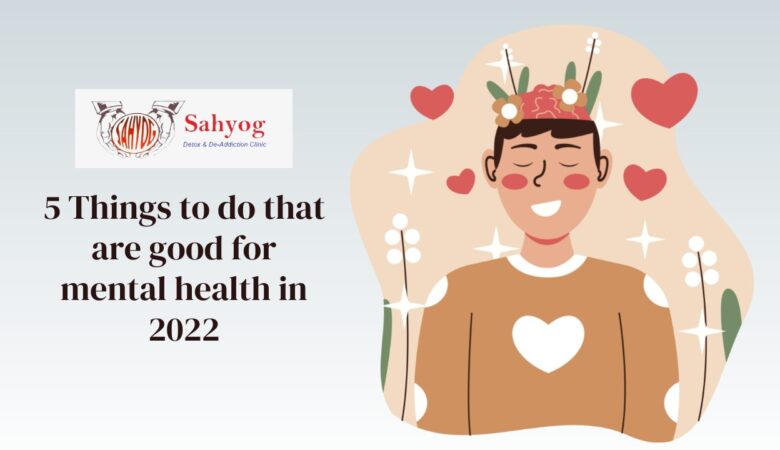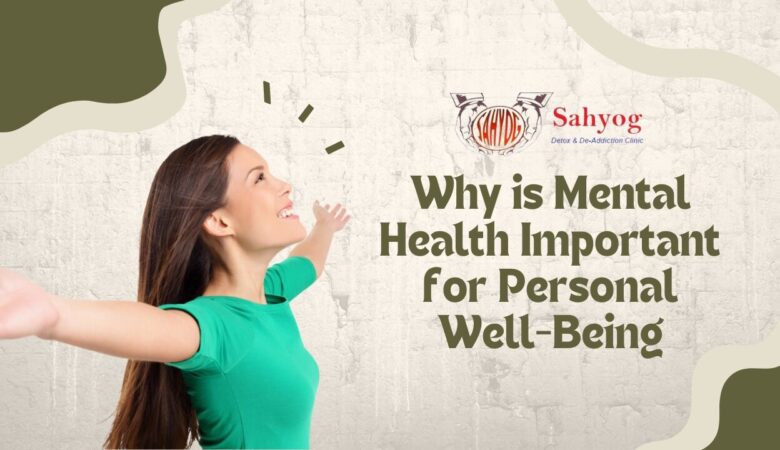5 Things To Do That Are Good for Mental Health in 2023
There’s no doubt that 2020 was a tough year for everyone. With the pandemic and all the stress that came with it, it’s no wonder that so many people are struggling with their mental health. If you’re looking to make some changes in 2023 that will be good for your mental health, here are 5 things you can do: Why Keeping Mental Health Good is Necessary? Mental health is often something that people forget about. However, it is important to keep your mental health in good condition just like you would your physical health. Here are some things you can do to keep your mental health good: Exercise: Exercise releases endorphins, which have mood-boosting effects. Get enough sleep: A good night’s sleep can help improve your mood and cognitive function. Eat healthy: Eating nutritious foods helps your body and mind to function at their best. Spend time with loved ones and friends: Social support has been linked with better mental health. Do things you enjoy: Doing activities you find pleasurable can help reduce stress and improve your mood. Signs you are Losing Mental Health It’s important to be aware of the signs that you may be losing mental health, as this can help you seek treatment and support early on. Some common signs include: Feeling persistently sad, anxious, or empty Loss of interest in activities that used to bring joy Feeling hopeless or helpless Withdrawing from friends and family Changes in eating or sleeping habits Decreased energy or motivation Feelings of worthlessness or guilt Trouble concentrating or making decisions If you are experiencing any of these signs, it’s important to reach out for help. Talk to your doctor, therapist, or a trusted friend or family member. There are also many hotlines and online resources available if you need someone to talk to outside of your immediate support system. How to know if you’re struggling with mental health If you’re struggling with mental health, it’s important to seek help. There are many resources available to help you understand your options and get the support you need. Here are a few signs that you may be struggling with mental health: You feel like you can’t cope with stress or problems. You’re using alcohol or drugs to cope. You’re withdraw from friends and activities. You’re mood swings are out of control. You’re having trouble concentrating or making decisions. You’re feeling hopeless, helpless, or worthless. If you identify with any of these signs, please reach out for help. You don’t have to struggle alone. Get enough sleep It’s important to get enough sleep every night in order to maintain good mental health. A lack of sleep can lead to a number of mental health problems, including anxiety, depression, and irritability. It’s recommended that adults get at least 7-8 hours of sleep per night. If you’re having trouble sleeping, there are a number of things you can do to help yourself fall asleep and stay asleep through the night. Eat healthy foods One of the best things you can do for your mental health is to eat healthy foods. Eating a balanced diet that includes plenty of fruits, vegetables, and whole grains can help improve your mood and keep your mind sharp. Avoiding processed foods and sugary drinks can also help you maintain a healthy weight, which is important for overall health. In addition to eating healthy foods, it’s also important to drink plenty of water. Staying hydrated helps your body function at its best and can also help improve your mood. If you’re not a fan of water, try adding some flavor with lemon or lime slices. Exercise regularly Exercising regularly has been shown to be one of the most effective things you can do for your mental health. It can help to reduce stress, anxiety, and depression, and can also help to improve mood, sleep, and cognitive function. There are many different ways to exercise, so there is sure to be something that fits your lifestyle and interests. You don’t need to join a gym or buy fancy equipment – simply walking or running outside can provide many of the same benefits. And remember, it’s not about how hard you work out, but rather how consistent you are with your workouts. Just 30 minutes of moderate exercise 3-5 times per week can make a big difference for your mental health. Take breaks from screens We all know that spending too much time staring at screens isn’t good for our physical health, but did you know it can also be detrimental to your mental health? If you’re feeling stressed or anxious, taking a break from your electronic devices can do wonders for your state of mind. There are plenty of things you can do instead of looking at a screen. Take a walk outside and get some fresh air, read a book, or call a friend and catch up. Any activity that gets you away from a screen and allows you to relax will help reduce stress and improve your mental health. Connect with others We all need social interaction and human connection. It’s one of the most basic things we need as humans, and it’s something that can be very easy to forget in the hustle and bustle of everyday life. Make a point to reach out to friends, family, or even co-workers and have a conversation. If you’re feeling extra introverted, there are plenty of ways to connect with others online. Join a forum or an online community related to something you’re interested in, or start a blog and share your thoughts with the world. Conclusion We hope this list of things to do for mental health in 2022 has been helpful! We all know that taking care of our mental health is so important, and sometimes it can be hard to remember to do things that are good for us. But if we can make even a few small changes in our lives, it can make a big difference. So


